Could Bitcoin fix the stagnant political and economic landscape?
| Crypto Words has moved! The project has migrated to a new domain. All future development will be at WORDS. | Go to WORDS |
Could Bitcoin fix the stagnant political and economic landscape?
By Genesis Node
Posted February 15, 2019
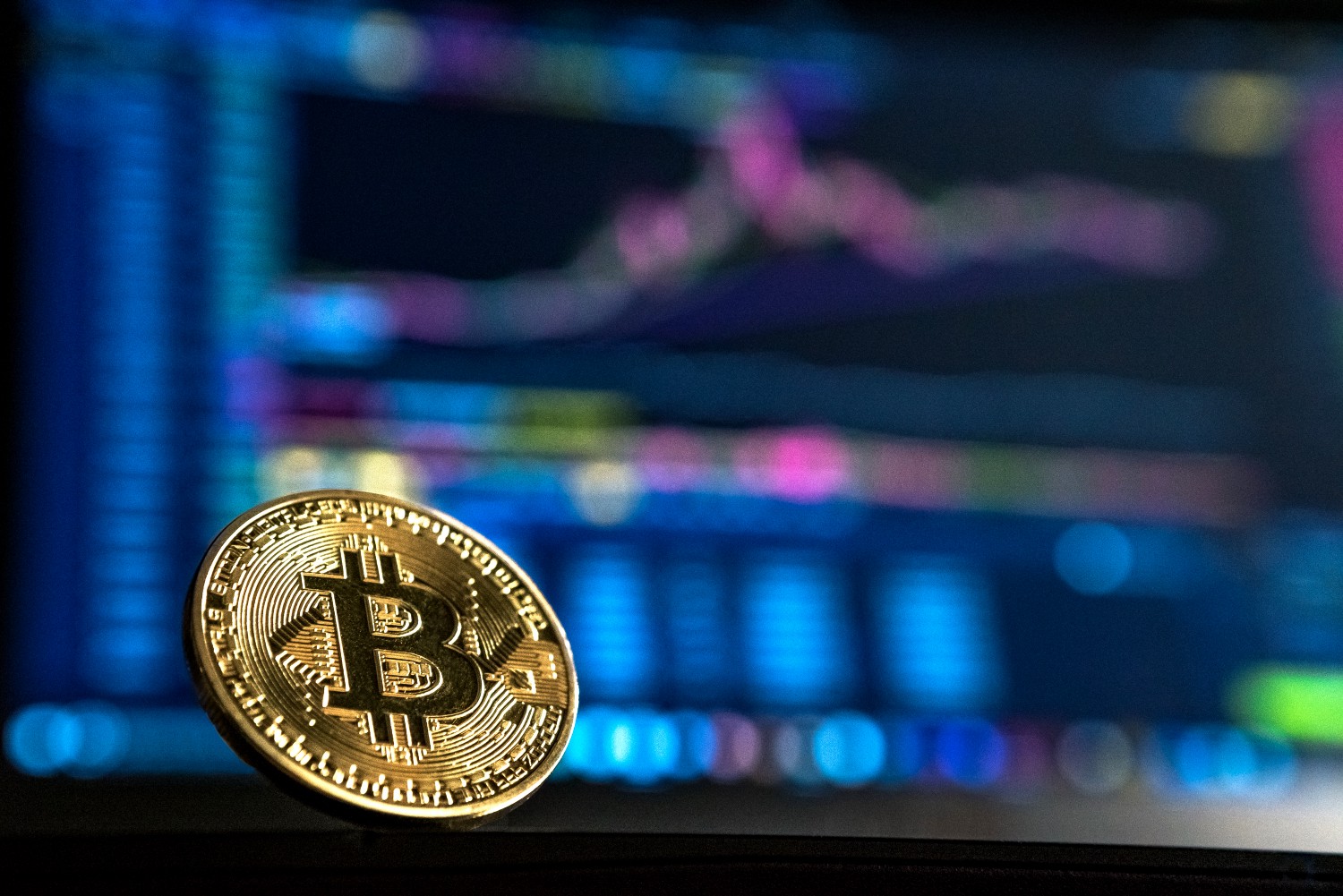 Photo by André François McKenzie on Unsplash
Photo by André François McKenzie on Unsplash
This article presents a view that modern politics is ineffective and largely hamstrung due to the underpinning economic system that a political party inherits when they take office. Capitalism is not the issue, it is the form of capitalism employed today and for over 100 years that has led us to a political and economic precipice. A return to a sound monetary system based on Gold or Bitcoin could redress the balance as it did for Britain post the Napoleonic wars when the nation was saddled with debt but transformed into the great economic powerhouse many still think of it as today…times may have changed, the rules of sound money and economic growth have not.
Part 1: Bitcoin is changing the world
Part 2: Politics isn’t working
Part 3: Economics is broken…long live economics
Part 4:Can Bitcoin fix Politics and economics?
Part 1: Bitcoin is changing the world…
Bitcoin is the single greatest disruptive innovation the world has seen since the internet and could transform the lives of individuals and nations that adopt it for use as their primary means of value exchange. Bitcoin can most easily be thought of as ‘digital gold’ and to a growing chorus around the world, is seen as the first truly digital currency that satisfies the key components of money: a medium of exchange, store of value and unit of account. Some would argue that it is too young (only 10 years old) and too volatile ($1k in Dec 2016, $19k in Dec 2017, $3k in Jan 2019) to fulfil the ‘store of value’ and unit of account narrative. However these detractors are missing the point, Bitcoin is an emergent form of money which at the extreme end of the scale could very well consume the entire monetary supply of the world extending across all existing currencies, monetary metals such as Gold, Silver and Copper and other more obscure forms of wealth storage such as real estate, art and even classic cars.
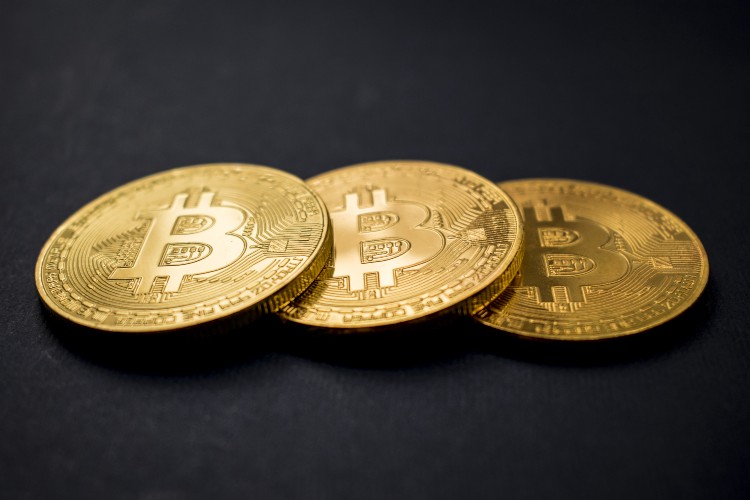 Photo by Dmitry Moraine on Unsplash
Photo by Dmitry Moraine on Unsplash
Bitcoin is young and needs time to mature, time to grow and time for the world to catch up and understand its real value, it is far too early to judge this crawling toddler on its ability to sprint at the Olympic final. Over time the open source Bitcoin software code will be improved by developers and computer scientists to solve some of its current perceived challenges (not all involved agree there are challenges that need to be overcome) such as the fact that it is not suited for micro-transactions like coffee and sandwich purchases and that it is the most transparent form of value transfer in the world. It is possible to ‘hide’ your identity using Bitcoin but the transaction can be traced with ease and Danish prosecutors successfully deployed blockchain forensic capabilities to arrest criminals in 2017 based on their use of the digital currency in illegal activities. So as we see the Bitcoin software add new features such as privacy to protect the information, account balance and activity of a user, ensure transactions cannot be traced, and increase the scalability to make it better suited for micro-purchases to fulfil the role that legacy networks such as Visa and MasterCard play today we will see it gain greater perceived value and utility.
 Photo by Rodion Kutsaev on Unsplash
Photo by Rodion Kutsaev on Unsplash
The user experience and ‘on-boarding’ of individuals is still a challenge and is one akin to the switch from paper money and cheques to using plastic cards, chip and pin systems and online banking. When onboarding issues are addressed and customer experiences become as seamless as tap and pay and 1-click eCommerce buying we will gradually see the world shift to using Bitcoin instead of paper money (tap and pay and PayPal are simply digital versions of paper money) and eventually institutional and government adoption will arrive — for context the Bitcoin and distributed ledger technology sector is probably where the internet and eCommerce was in the early 1990s. Some people argue that currency is already ‘digital’ so there’s no need for Bitcoin. They are half right, systems like PayPal, online banking and tap and pay are all integrated into the existing banking infrastructure which is controlled by centralised authorities such as banks and governments with the power to stop or limit transactions and/or inflate the currency supply. The fact that governments and central banks effectively impose the use of their printed paper (and digital forms of it) money does not mean that the currency actually has any value — the link of paper money having real value ended when the gold standard finally ended in 1971 and the world moved to adopt a government issued paper money (fiat currency) that is still in place today. Bitcoin represents a break from this system as it is not owned or created by a central authority, it is an open source, permissionless, peer to peer software protocol that is backed by the laws of mathematics. There is no longer a need to trust a government to undertake responsible economic behaviour that erodes the wealth of savers, risks hyperinflation and as Bitcoin matures to become a less volatile and more reliable store of value the final stage for it to become a universally recognised and accepted unit of account will be challenged by all governments in the world as it reduces their power and ability to control the people.
Why is this important?
 Photo by Kristina V on Unsplash
Photo by Kristina V on Unsplash
Bitcoin offers the world an opportunity to move to a more sound monetary basis, one that is not controlled and dictated by Central Banks and Governments and one which more closely fits the principles of Austrian Economics and is closer to a gold standard model that will allow growth and economic prosperity where there is genuine competition and international trade rather than the existing world of artificial credit creation and money printing which is heading towards an economic disaster as we approach the event horizon. As soon as the mainstream media starts writing about the benefits of ‘helicopter money’ and negative interest rates and how they will stimulate the economy and bring back growth and prosperity then that is the signal that the end is near…time to stockpile tinned food and hide in the woods. As for banks such as JP Morgan deploying their own ‘cryptocurrency’…the media analysis, understanding and reporting on the entire crypto and distributed ledger technology space is spectacularly appalling and ill-informed.
Bitcoin is economic sovereignty, the world needs it now more than ever and there really is no competition.
Part 2: Politics isn’t working…
The effectiveness of policymakers to effect change is growing increasingly stagnant and all across the political spectrum there seems to be a general sense of dissatisfaction and an emergent notion that we have arrived at a stalemate in the current political context. Left, Right, Centre….none of it seems to have the impact it once did and the feeling is one of foreboding dread that we are simply rearranging the deckchairs on a sinking ship. One of the root causes could very well be the fact that all policies are affected by, and implemented using the same broken underlying economic principles that will at some point come crashing down around us…and our politicians are not talking about it anywhere near enough because to engage in the discourse is complex, arduous and unlikely to win any votes. This is not a challenge to the notion of capitalism, rather it is the fact that our current form of capitalism isn’t working and has left us trapped in a period of low interest rates, anaemic growth and high debt.
 Photo by Ruth Enyedi on Unsplash
Photo by Ruth Enyedi on Unsplash
Whether a particular political party promising ‘free healthcare for all’ and an ‘increase to the social welfare budget’_or another proposing _‘huge capital infrastructure investments to spread wealth around the country’ and an ‘increase to the basic living wage allowance’ the net effect is the same — greater debt funded by unconstrained monetary policies which erode the purchasing power of the individual and increase the national debt burden on a massive scale. Whichever political party may be in power is now irrelevant and any changes pushed through are likely to be superficial and short lived in benefit as the incumbent party will simply be contributing to the increasing debt pile and doing nowhere near enough to change the underlying issues of a flawed and broken socio-economic system. Unless there is a total global reset where all public debt is wiped out then it simply must be repaid and it is folly to assume that expansionary monetary policies could continue to provide a solution without creating other indirect issues in society. These issues eventually bubble up via political divisions and rivalries with one faction blaming the other for perceived inequalities and mistreatment at the expense of the other whilst the one common cause of global disparity in living standards, growing rich/poor divides and overall instability sits back, watches, creates a narrative to apportion blame to a particular sector(s) within society and enjoys the inevitable state aid funded via the monetary printing presses to temporarily fix the symptoms rather than the root cause at the expense of long term damage to everyone else.
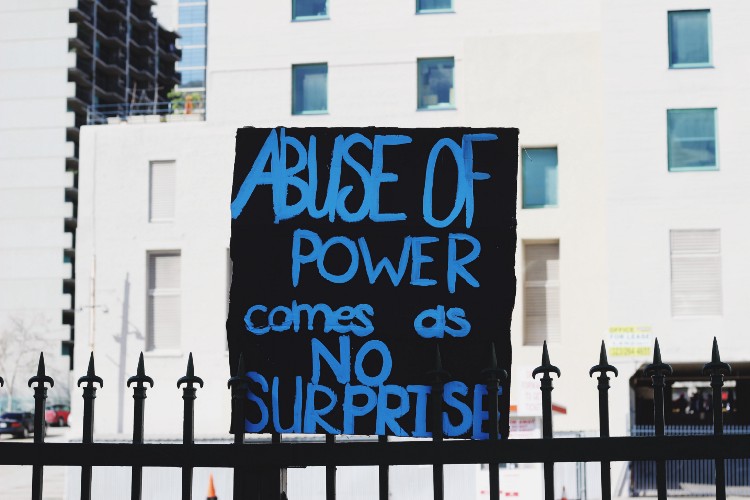 Photo by Samantha Sophia on Unsplash
Photo by Samantha Sophia on Unsplash
Are the politicians themselves to blame? Maybe, but the sad fact is that they are probably well meaning idealists that are either unaware of the root causes of the political and economic malaise the world is in or they are so entrenched in the nature of their current reality that they are afraid of asking deep, difficult and complex questions about the effectiveness of their own policies and the foundation upon which they sit. For them it is probably better to use catchphrases and capture popular sentiment to win votes than to tell a difficult truth and expose peers, sponsors and face private sector funding cuts. In a short term cycle of government power (every 4 years in the UK) it is more effective to accuse the other of financial mismanagement and point the finger of blame whilst promising ‘real change for the people’ rather than working collaboratively across parties to correct the course of a ship that has sailed far off course over the last 100 years since the first break with the gold standard and the era of government money began.
Part 3: Economics is broken…long live economics…
 Photo by Randy Colas on Unsplash
Photo by Randy Colas on Unsplash
At the root of these issues is the basic belief that Keynesian economic policies, government spending and central planning are the most effective mechanisms of economic management. If implemented with trust and discipline, these doctrines could possibly have led the world to a more sustainable position than we find it in today however the temptation for governments and central banks to print money and expand the economy without a sound basis such as a gold standard has proven too tempting and with long lasting negative impacts for the world. Central banks and central planning authorities such as the International Monetary Fund, European Central Bank, Bank for International Settlements, Federal Reserve, Bank of England, Bank of Japan and the Peoples Bank of China (amongst others) seek to balance the trade and economies of the world through complex statistical models that have created an enormous drain of capital, brain power and research that could have gone to better use and arguably they have done little to improve society aside from adding mountains of debt and complexity.
Since the start of World War One we have seen a succession of governments around the world realise that if they move away from sound monetary principles such as was in place under the gold standard and implement a ‘fiat’ (government dictated money) currency that they fully control then they award themselves almost limitless power and resources — but in return they promise to the citizens not to print too much money to avoid an inflationary crisis. If they manage that with central planning authorities in place then in effect they can continue the illusion that a growing economy requires ‘expansionary monetary policy’ to accommodate it and that they are engaging in policies that support economic growth and an improvement in living standards. The trouble there however is that the level of debt we now find ourselves in the world over is at an almost unsustainable level.
The previous levers that were used to inject momentum into failing economies no longer work as effectively as they once did because:
- Interest rates are near zero and can’t be cut much further to stimulate growth
- Government bond purchasesby central banks exacerbate the debt problem
- Devaluation of a currency can spark a trade war and an escalation in international political tension
In summary, the global financial armoury is severely depleted.
The recent social media fad of a #10yearchallenge doesn’t look too good for the UK with a Debt to GDP ratio in 2008 of 49% and a 2018 ratio of 89% , the USA moving over the same period from 68% to 105%, Greece from 105% to 180% and Japan in 2019 at over 250% one could ask where this all ends and how it could possibly be sustainable. The current disillusion and unrest across the Eurozone area is an interesting analysis here and is not something that should be ignored because it can, to a large extent be laid at the feet of the failed Euro currency experiment and central planners attempting to control the fiscal policies of nation states that are simply too distinct and too different to operate under a centralised model.
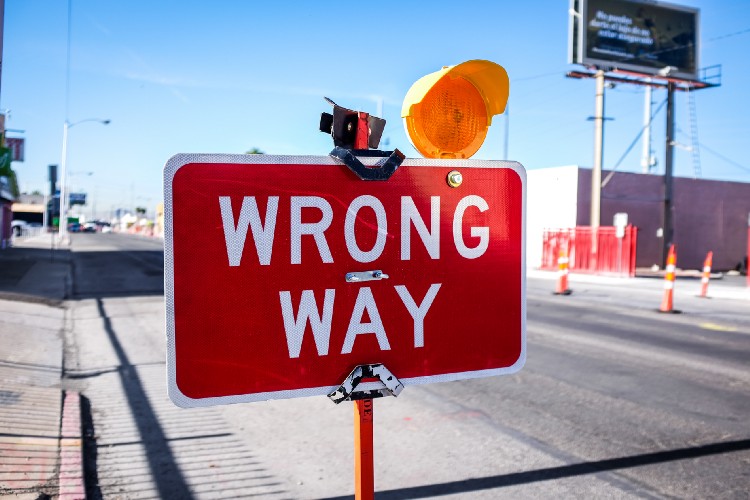 Photo by NeONBRAND on Unsplash
Photo by NeONBRAND on Unsplash
In his recent book, ‘Euro Tragedy: A drama in nine acts’ Ashoka Mody, ex-Assistant Director at the IMF outlines the core principle behind the flaw of the Euro currency, “the core flaw is very simple. That a single currency means a single monetary policy. The very diverse economies that are sharing a single currency, they have the same monetary policy. That monetary policy is likely to be too tight for the countries that are economically weak. That monetary policy is likely to be too loose for countries that are strong. And so, the weak country will be further handicapped by a tight monetary policy, the strong country will benefit”._Mr Mody goes on further to state that, _“there’s no question that the euro was a bad idea in every way. It was bad economics, it was bad politics. And the only thing we can say for it today is that perhaps the cost of breaking it up would be so great that we need to try to hold it together. There will always be an inherent tendency in the euro system to pretend that a crisis does not exist, so to first deny it, then delay the response, and the denials and delays will cause the crisis to fester, and become worse. The original economic wound will leave scars. Over time, these scars, through successive crisis, will continue to build, the social and political fabric of Europe will continue to be undermined. And that, I think, will eventually end in a way that could make everybody very unhappy.”
So what can be done to fix all of these issues?
 Photo by Cole Keister on Unsplash
Photo by Cole Keister on Unsplash
For starters the mainstream and commonly accepted view that Keynesian economics and the belief that government spending stimulates an economy needs to be challenged and a more moderate discourse needs to be evaluated and given prominence in Universities, governments, institutions and central banks around the world — whether there is merit in continuing to pursue a centrally planned, Keynesian economic doctrine is to be determined. The Austrian model of economics purports that a free market system based on sound monetary principles would present a truer and more responsible approach to money, finance and economics. Perhaps a new blend of Austrian and Keynesian principles could emerge so that fractional reserve banking (banks lending out more money than they have in deposits) either stops or is severely reigned in, government spending is limited, debt levels are reduced and the easy money principles that cause debt mountains, encourage high risk investments and moral hazard dilemmas that are facilitated by central banks are put to an end.
Nomi Prins, ex-Wall Street Executive turned author discusses the impact of global central banking and easy money policies in her book ‘Collusion: How Central Bankers rigged the world’ and writing for ‘ Le Monde diplomatique’ in December 2018 she concluded that, “The financial crisis of 2008 initially fostered a policy of bailing out banks with cheap money that went not into Main Street economies but into markets enriching the few. As a result, large numbers of people increasingly felt that they were being left behind and so turned against their leaders and sometimes each other as well. This situation was then exploited by a set of self-appointed politicians of the people, including a billionaire TV personality who capitalized on an increasingly widespread fear of a future at risk. Their promises of economic prosperity were wrapped in populist platitudes, normally (but not always) of a right-wing sort. Lost in this shift away from previously dominant political parties and the systems that went with them was a true form of populism, which would genuinely put the needs of the majority of people over the elite few, build real things including infrastructure, foster organic wealth distribution, and stabilize economies above financial markets. In the meantime, what we have is, of course, a recipe for an increasingly unstable and vicious world.”
Part 4: Can Bitcoin fix Politics and economics?
 Photo by Marvin Meyer on Unsplash
Photo by Marvin Meyer on Unsplash
How then could Bitcoin possibly fit into all of this and make a difference? For most people, Bitcoin is a magic internet money that should be dismissed as a result of its alleged links to organised crime, money laundering and drugs. The sad truth is that the media coverage and the global understanding of what Bitcoin represents is woeful and the international currency of choice for any kind of criminal activity is the US Dollar with most major banks in the world being accused of some form of fraud, money laundering and criminal activity over the last 10 years — just last year there was an estimated $3 Trillion of money laundered through the existing banking system.
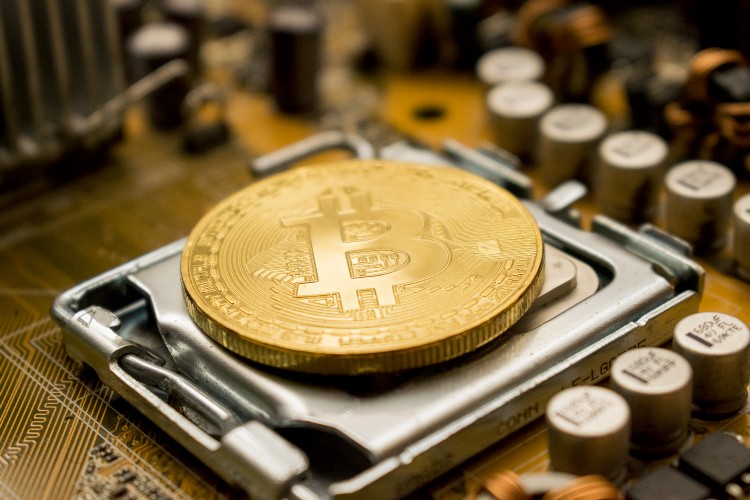 Photo by Dmitry Moraine on Unsplash
Photo by Dmitry Moraine on Unsplash
In a nutshell Bitcoin is the most effective form of money the world has ever seen and will change the world of money and finance as we know it as the possibility of circumventing the existing system and authorities to store, transact and transfer value globally now exists. Bitcoin is verifiable, portable, fungible, durable, divisible, scarce, censorship resistant and has an unforgeable costliness to produce and create as a result of the complex ‘mining’ required to produce new supply, verify transactions and secure the network — it cannot simply be created by a central authority unlike paper money today. After 10 years of life Bitcoin has never been hacked and the ‘Lindy effect’ outlines that every moment that goes by when Bitcoin exists further reinforces its value and implies a longer remaining life expectancy — the energy and computing power required to compromise the Bitcoin network would require a number of nation states to cooperate with little potential benefit at the end as the network would simply ‘fork’ away from the compromised chain of transaction records, rendering the hack costly and of little value to the agitator. Critics of Bitcoin, including the BIS in a recent publication, argue that it is too energy intensive to be useful however again, they are missing the point, the ‘unforgeable costliness’ of mining and securing the network ensures the system is safe and that it cannot be hacked by malicious actors.
Only 21 million Bitcoins can ever exist, circa 17m currently exist and it will take until c2140 for the full supply to be released into society — this is true monetary ‘hardness’ and scarcity of supply as opposed to ‘soft’ fiat government money that can be either printed at will in whatever quantity is required or injected digitally at next to zero cost to ‘stimulate economic growth’ — but the basic rules of supply and demand dictate that the higher the supply the lower the price of a good. The ability to safely and securely use the Bitcoin network to send almost unlimited value around the world within hours is truly transformational and its uncensorable nature means that it can be used as a medium of exchange in countries where government money has failed such as Venezuela or Zimbabwe and with others such as Argentina, Pakistan and Turkey staring into the monetary abyss (Italy and Greece aren’t far behind either) there may yet be more countries who wilfully adopt Bitcoin as their primary medium of exchange.
The exchange of ‘money’ for goods and services is an act that has been going on since the earliest days of humanity and for the first time, Bitcoin offers a near perfect solution. The open source software probably needs to be improved to accommodate micro-purchases and operate as a high speed transaction network at scale such as Visa and there is probably merit in implementing privacy as it is at present, the most traceable and most transparent payment mechanism the world has ever known — you don’t really want the coffee shop owner to have the ability to check how much value is in the account you just paid them from and all the other transactions you have ever undertaken using that account which is the case with Bitcoin today. The best way to think of Bitcoin is as digital gold with the scale of wealth it can transfer being more akin to a huge container ship transporting goods across oceans rather than the final mile postman delivering packages and letters.
So could Bitcoin really fix the stagnant political and economic landscape?
Whilst it would be great to give a resounding ‘yes’ to this question the reality is much more opaque and complex. For Bitcoin to have a real impact on a mass scale it requires adoption, mass adoption could drive wholesale change at a national level and that in turn could lead to a nation state (possibly more than one) choosing to move towards a more sound version of money and economic principles with Bitcoin as the primary medium of exchange — it will not be an easy or painless journey but long term would help restore an order of capitalism, competition and market forces that is a true reflection of the value of labour outputs of a nation.
 Photo by Randy Colas on Unsplash
Photo by Randy Colas on Unsplash
Instead, the best question to ask yourself is what you know about the root cause of endemic failures in the economic system that invisibly governs the whole world and causes so much division and divide — the recent Gilet Jaunes protests in France are a good indication of the deepening divisions and disillusions with the current system and ruling classes. Any political party that proposes a root and branch review and change of the economic systems that have been in place for almost 100 years and challenges the need for fiat currency will not however garner mass support or win enough votes to take office. So unless a government with potentially unlimited and unchecked power voluntarily cedes economic control back to the people and starts a slow and painful process of change to improve the lives of its citizens the charade will continue until the entire system collapses and a scapegoat is found. We may yet see both a bottom up approach where the people of a country in strife choose Bitcoin en-masse as their money and medium of exchange and force the hand of their government. We may also see a top down approach of a government that is facing some form of international sanctions and embargoes adopt a new, uncensorable money — Venezuela will be interesting to watch throughout 2019–2021 as the people there are already adopting Bitcoin on a massive scale and with the Bank of England rejecting the recent Venezuelan Government request to repatriate over $1 Billion of their own gold (and for good reason!) then even the government might choose to adopt Bitcoin and rebuild their society on a more sound, sovereign and independent footing.
It is possible that Gold and Bitcoin backed currencies, Austrian economics and a return to more traditional economic values and a free market approach presents a way out of the chaos. Real change in politics around the world needs cross party consensus and commitment that the one thing that unites us all is fixed before we can return to a conversation about Left vs Centre vs Right.
Fin
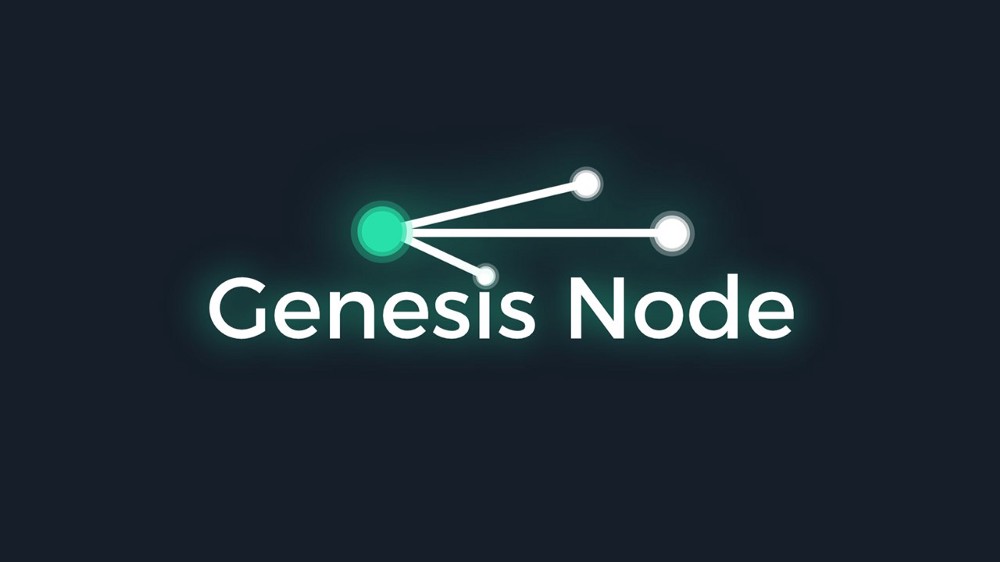 Copyright Genesis Node 2019
Copyright Genesis Node 2019
Genesis Node is a Bitcoin, cryptocurrency, distributed ledger and decentralised business model training and advisory company and can be found at www.genesis-node.com
References
 Photo by Thomas Kelley on Unsplash
Photo by Thomas Kelley on Unsplash
Referenced articles
Ashoka Mody: https://paw.princeton.edu/podcast/pawcast-ashoka-mody-euros-inherent-flaws
Dan Held : https://medium.com/@danhedl/planting-bitcoin-56bd1459cb23
Max Rangeley: https://www.montpelerin.org/wp-content/uploads/2018/07/Rangeley-Max-The-Emerging-Free-Market-in-Money.pdf
Misir Mahmudov: https://blog.goodaudience.com/bitcoin-winner-takes-most-or-winner-takes-all-c509aebaa19a
Murad Mahmudov: https://blog.usejournal.com/bitcoin-past-and-future-45d92b3180f1
Murad Mahmudov: https://hackernoon.com/the-many-faces-of-bitcoin-1c298570d191
Nomi Prins: https://mondediplo.com/openpage/wall-street-banks-and-angry-citizens
Venezuela Gold: https://www.telegraph.co.uk/news/2019/01/28/venezuelas-interim-president-asks-bank-england-stop-nicolas/
Venezuela Bitcoin usage: https://bitcoinist.com/venezuela-bitcoin-trading-giant-high/
Books
Collusion — Nomi Prins
Euro Tragedy — Ashoka Mody
Human Action — Ludwig Von Mises
The Bitcoin Standard — Saifedean Ammous

 Photo by
Photo by  Photo by
Photo by  Photo by
Photo by  Photo by
Photo by